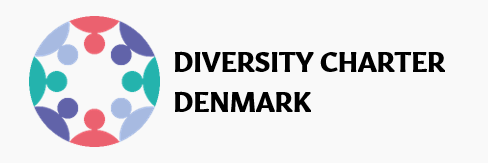Computerworld: Room for Physical Disability
A study shows that 62% of Danish employers decline to invite people with severe physical disabilities to job interviews (Incita). This means that many qualified individuals with disabilities remain outside the job market, even though they should be an equal and natural part of the Danish workforce.
At Computerworld, it was Jacob Ø. Wittorff’s professionalism and skills that mattered when he was hired — not the fact that he uses a wheelchair. In practice, only a few adjustments were needed at the workplace, and both management and Jacob agree that openness is the most important factor.
“You need to have an honest conversation about what the actual limitations are,” emphasizes Editor-in-Chief Lars Jacobsen. He believes many employers have concerns that stem from uncertainty.
Jacob Ø. Wittorff has been employed as a journalist at Computerworld since 2010. Jacob uses a wheelchair due to a congenital condition causing brittle bones. As a wheelchair user, he has spent a lot of time reflecting on the labor market and its expectations.
“In some places, there’s a lot of awkwardness,” says Jacob, and continues:
“And if there are two equally strong candidates, they’ll often choose the one without a physical disability, since it’s seen as easier to hire someone who fits right into the company without challenges. Based on how many applications I’ve sent, I’ve been called in for very few interviews, and I think that might be because I use a wheelchair.”
Room for Everyone
However, starting at Computerworld was not a challenge for Jacob. Editor-in-Chief Lars Jacobsen was involved in hiring Jacob and explains that no physical changes were necessary.
“When we moved to our new offices, it was important to have proper facilities for people with disabilities, such as accessible toilets, elevators, and designated parking spots.”
While the physical setup was in place, Computerworld still wanted to go the extra mile. Lars and Jacob had a conversation upon Jacob’s hiring to set expectations.
“We do a lot of business travel here, so I asked Jacob if he would be able to handle that. Jacob explained that he could absolutely travel, but it requires more coordination and planning — and sometimes, it’s just not worth the hassle,” Lars says.
Jacob describes his reception at Computerworld as very positive and says his disability “has never been brought up as a problem.” Instead, he highlights getting a fair chance on equal terms with others as the biggest hurdle.
“Most people with disabilities just want to be part of the job market like everyone else and contribute. Often it’s about employers taking a chance — or actually giving a chance — just like they do with any new hire,” Jacob explains.
He continues:
“But people should be hired because of their qualifications and how they can contribute — just like anyone else. It shouldn’t be seen as a CSR project. People with disabilities should be held to expectations too.”
Lars nods in agreement and adds:
“Exactly. It’s really about being open-minded and not being afraid to ask questions.”
What would you recommend to other companies looking to follow your example?
“My clear impression is that if you’re over 50 or have a disability, it’s very hard to get hired. There’s a huge shortage of workers in the IT industry. My advice is: challenge yourself and surprise yourself. When I’m going through applications, I always include a few ‘wild cards’ to challenge my own assumptions and biases,” says Lars.
He finishes with a call to action:
“It’s okay to tell HR that you’re actually looking for something different than what you usually hire.”
Translated from Danish to English by Foreningen Lige adgang.
